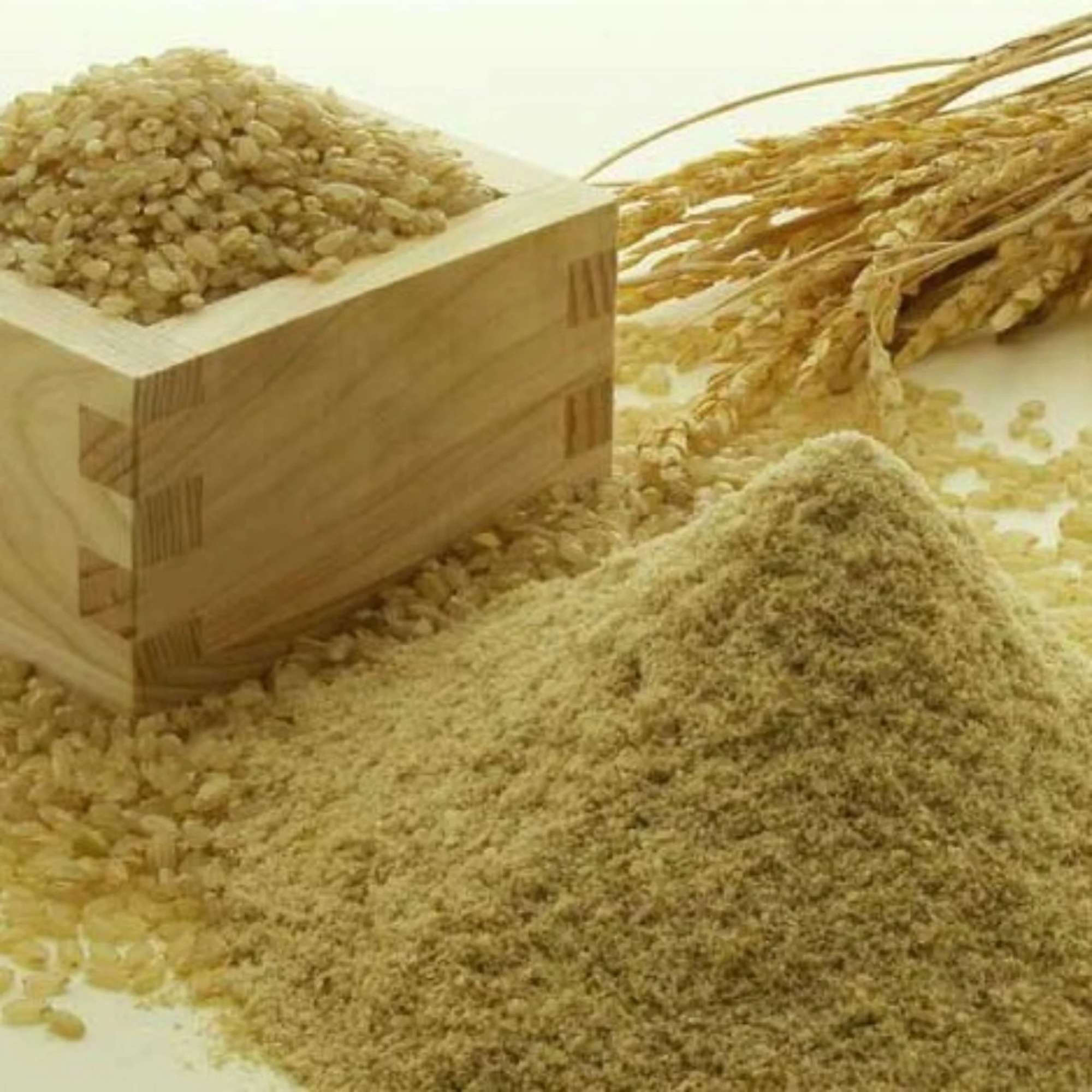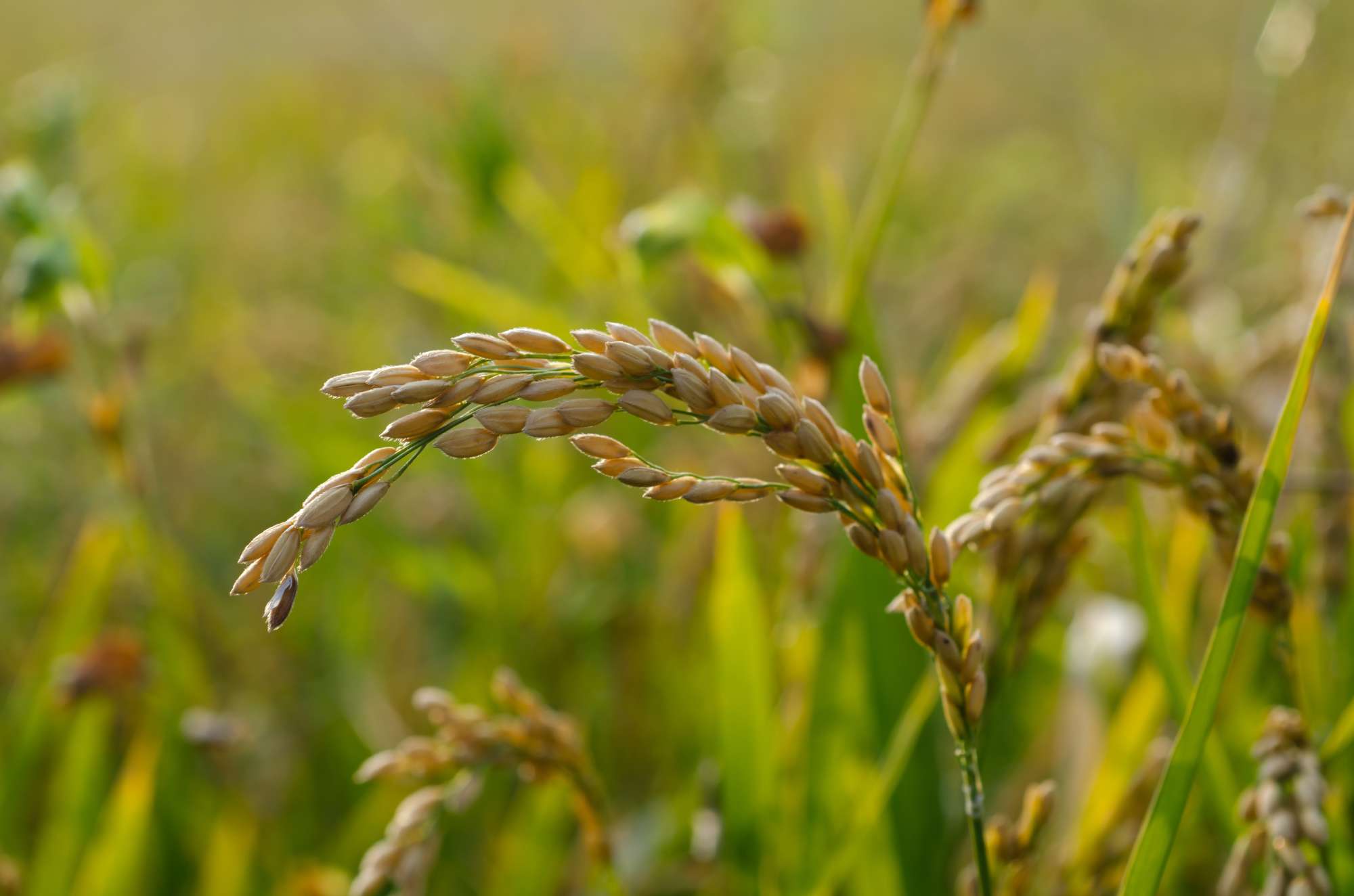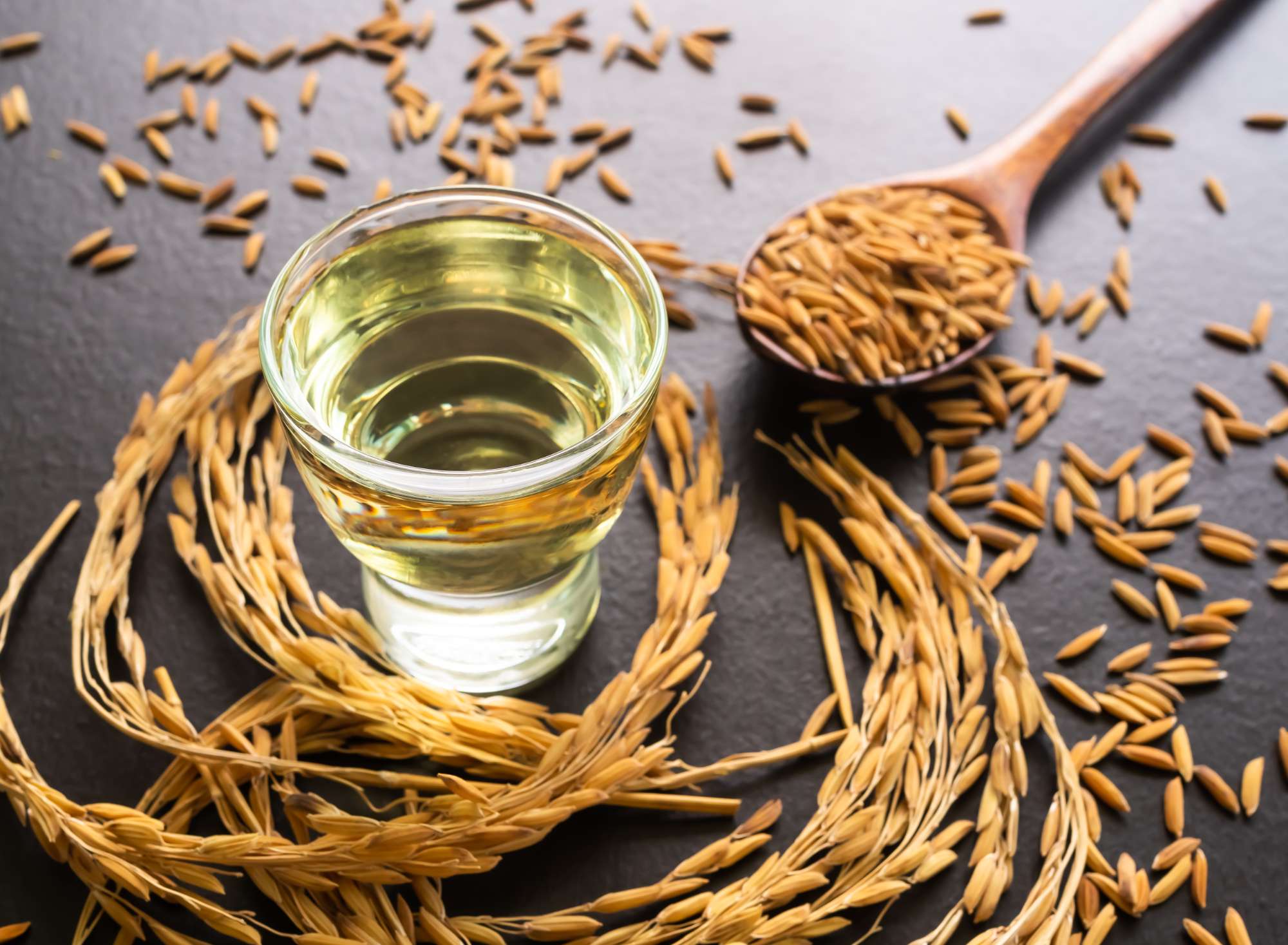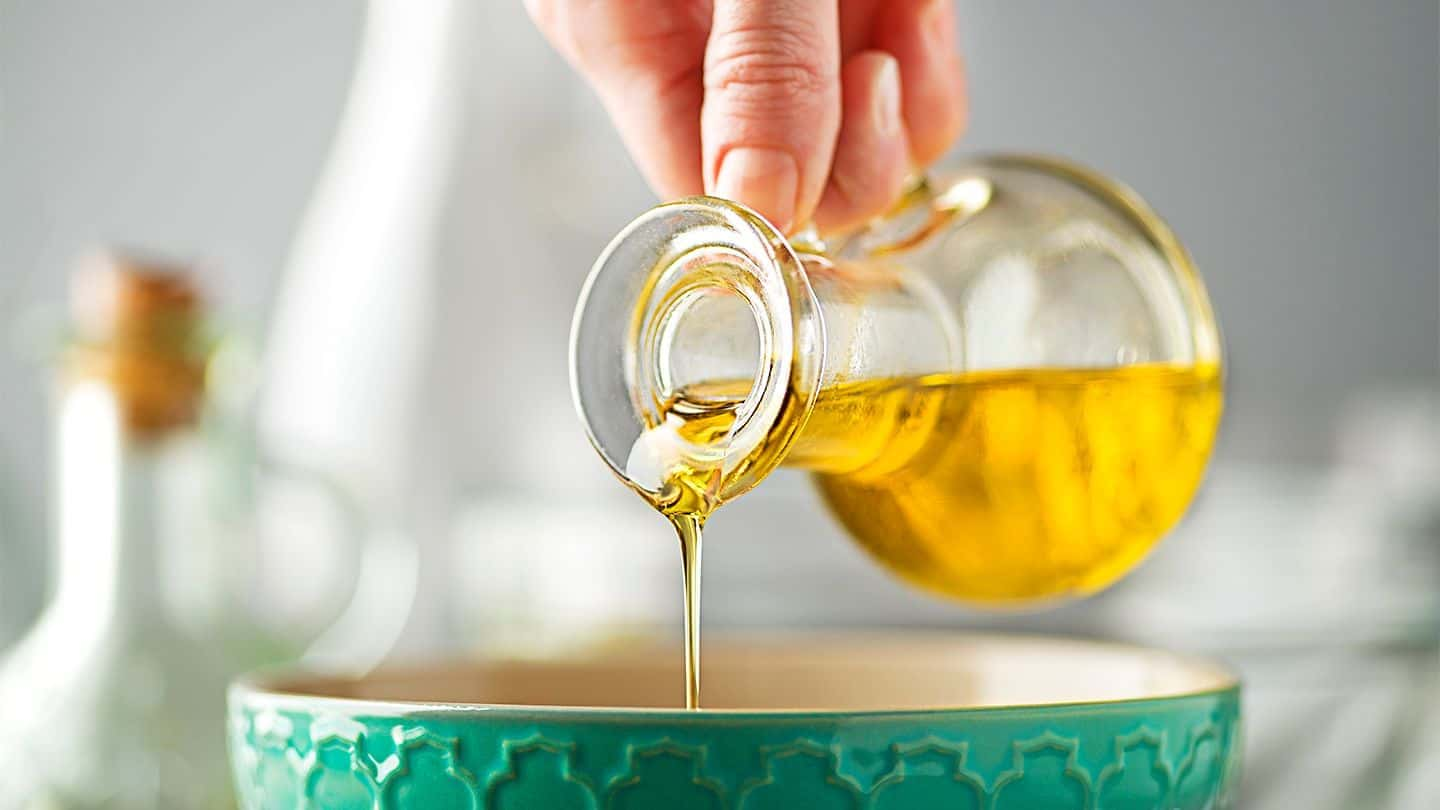Rice Bran Oil is considered a source of Oryzanol
Rice Bran Oil is considered a source of Oryzanol
Rice bran oil is one of oryzanol source oils. Oryzanol is an antioxidant compound that is related to the absorption of cholesterol, and is used in hyperlipidemia treatment and menopause problems.
Although scientific evidence is relatively limited, rice bran oil (RBO - Rice bran oil) is tenaciously believed to be a healthy vegetable oil in Asian countries. The available data from a range of human trials suggest that rice bran oil is an edible oil of preference for improving plasma lipid and lipoprotein profiles similar to more commonly used vegetable oils.
It exerts hypocholesterolemic activity in relation to more commonly used vegetable oils and is characterized by a relatively high content of non-fatty acid components, some of which are known to have beneficial health effects. Components specific for rice bran oil such as gamma-oryzanol and tocotrienols could participate in its hypocholesterolemic effects. In addition, blending RBO with safflower oil, but not with sunflower oil, may magnify the hypocholesterolemic efficacy.


Rice bran oil is quite versatile. It has a nutty, earthy flavor similar to that of peanut oil. Its high smoke point means that it’s suitable for high-temperature cooking. Moreover, its beneficial compounds, such as oryzanol and tocotrienols, are well preserved when cooked. You can use the oil for stir-fries, soups, dressings, and vinaigrettes. It’s also easy to add to hot cereals like oatmeal. For a unique twist, you can blend rice bran oil with other oils, such as olive or canola oils.
CONTAINS BENEFICIAL NUTRIENTS
Rice bran oil (RBO) is extracted from rice bran and has also become increasingly popular. RBO is considered to be one of the healthiest cooking oils due to its balanced proportion of fatty acids, as well as high content of γ-oryzanol together with phytosterols, vitamin E, wax ester, trace and macro elements, carotenoids, and phenolics. The existence of these compounds provides RBO with various functions, including hypotensive and hypolipidemic functions, antioxidant, anticancer, and immunomodulatory functions, antidiabetic function, anti-inflammatory and anti-allergenic functions, hepatoprotective activity function, and in preventing neurological diseases. However, the processing and use of rice bran may still affect the nutrients in rice bran oil to varying degrees.

IT BRINGS SOME HEALTH BENEFITS
1. May Support healthy blood sugar levels
Rice bran oil may support healthy blood sugar levels by improving insulin resistance, a risk factor for type 2 diabetes. Insulin lowers blood sugar by transporting sugar into your cells. Yet, if you develop insulin resistance, your body stops responding to this hormone.
In a test-tube study in mouse cells, rice bran oil reduced insulin resistance by neutralizing free radicals, which are unstable molecules that may lead to oxidative stress.
In a 17-day study in mice with type 2 diabetes, rice bran oil significantly lowered blood sugar levels by increasing insulin levels, compared with the control group.
A human study found similar results. The morning after 19 healthy men ate a single meal containing 3.7 grams of rice bran mixed in oil, their blood sugar levels dropped 15%, compared with those who didn’t eat this ingredient.
Yet, no changes in insulin levels occurred, suggesting that rice bran oil may even support healthy blood sugar levels without affecting insulin. As such, more research is needed.
2. May promote heart health
Researchers attributed the improvements in cholesterol levels to the oil’s plant sterols, which prevent your body from absorbing cholesterol. In fact, the Japanese government recognizes this oil as a health food because of its cholesterol-lowering effects.
Early studies in mice show that rice bran oil significantly lowers LDL (bad) cholesterol while boosting HDL (good) cholesterol. Human studies likewise note that this oil reduces LDL (bad) cholesterol.
A review of 11 randomized, controlled trials in 344 people linked rice bran oil intake to significantly lower LDL (bad) cholesterol levels — an average drop of 6.91 mg/dL. Just a 1 mg/dL decrease in LDL can reduce heart disease risk by 1–2%.
Eight of the studies involved people with hyperlipidemia, or high concentrations of fat in the blood, while the remaining ones monitored people without this condition.
In a 4-week study in people with hyperlipidemia, following a low-calorie diet with 2 tablespoons about 30 ml of rice bran oil per day led to significantly decreased LDL (bad) cholesterol, as well as reductions in other heart disease risk factors, such as body weight and hip circumference.
3. Has antioxidant and anti-inflammatory effects
Several active compounds in rice bran oil, including oryzanol and tocotrienols, may provide antioxidant and anti-inflammatory effects by the way it suppress several enzymes that promote inflammation. In particular, it may target inflammation in your blood vessels and heart membrane. If untreated, this inflammation can trigger atherosclerosis - the hardening and narrowing of the arteries, which can lead to heart disease.
Furthermore, test-tube studies in mouse cells reveal that other active compounds called tocotrienols inhibit inflammation.
In a 4-week study, 59 people with hyperlipidemia took either 2 tablespoons about 30 ml of rice bran oil or soybean oil. Compared with soybean oil, rice bran oil significantly increased people’s antioxidant capacity, which may help combat oxidative stress.
4. May have anticancer effects
Test-tube and animal studies suggest that compounds in rice bran oil may safeguard against cancer, but further research is needed.
Tocotrienols, a group of antioxidants in rice bran oil, may have anticancer effects.
Test-tube and animal studies indicate that tocotrienols suppress the growth of various cancer cells, including those of the breast, lung, ovary, liver, brain, and pancreas.
In one test-tube study, tocotrienols from rice bran oil seemed to protect human and animal cells exposed to ionizing radiation, high levels of which may cause harmful effects like cancer. Additional test-tube studies reveal that tocotrienols have strong anticancer effects when combined with other anticancer drugs or chemotherapy.
However, it’s controversial to supplement with antioxidants, such as tocotrienols, during chemotherapy. That’s because research is mixed on whether doing so boosts or impairs treatment. Thus, more studies are necessary. Keep in mind that rice bran oil should not be considered a treatment for cancer.
5. May fight bad breath
One study in 30 pregnant women found that oil pulling with rice bran oil reduced bad breath.
Oil pulling is an ancient practice that involves swishing oil around in your mouth like mouthwash to improve oral health. Researchers speculate that the oil’s rich antioxidant content may be responsible.
6. May enhance immune health
Rice bran oil may improve your immune response, which is your body’s first line of defense against bacteria, viruses, and other disease-causing organisms.
For example, a test-tube study in mouse cells revealed that an oryzanol-rich extract from rice bran oil enhanced immune response. However, it’s unclear whether this effect occurs in humans.
7. May boost skin health
The antioxidants in rice bran oil may support skin health.
In a 28-day study, people experienced improvements in forearm skin thickness, roughness, and elasticity after using a gel and cream containing rice bran extract twice daily. Despite a lack of research, several moisturizers and other products marketed to those in search of younger-looking skin contain rice bran oil.

POTENTIAL RISKS OF RICE BRAN OIL
Because rice bran oil has such potent ingredients, you should consult with your doctor before taking it or any other supplement. Consider the following risks associated with this oil before adding it to your diet:
1. Use in Moderation
Rice bran oil is a fat and should be used in moderation. Following the serving suggestions when using it should keep your consumption within a moderate range.
2. Shelf Life
If your rice bran oil is unrefined, it is best to store it in the refrigerator to preserve its shelf life.
3. Hypotension
Because rice bran oil may lower blood pressure, people with low blood pressure should speak with their healthcare provider before adding it to their diets.
DID YOU KNOW?
Effect of novel combination processing technologies on extraction and quality of rice bran oil.
Rice bran, a primary by-product from the rice processing industries, containing 10-15% oil, attracts significant attention from consumers due to its many health-promoting effects. The extraction methodology used is one of the most critical factors affecting the quality and yield of oil from rice bran. Using solvents is the current commercial process for rice bran oil extraction, which has its setbacks. It is challenging and expensive, and there is a risk of traces of solvent residue in the oil. Emerging combination extraction technologies offer zero to minimal solvent residues or chemical deformation while considering increasing environmental and energy footprint. Emerging combination processing technologies include new-age methods like supercritical fluid extraction, sub-critical fluid extraction, ultrasound-assisted enzymatic extraction, ohmic heating, and microwave-assisted extraction. These techniques have been reported to extract oil from rice bran, improving extraction efficiency and quality. These techniques demonstrate solid prospects for future applications. The present review discusses and compares these emerging technologies for oil extraction from rice bran commercially.
Compiled and written by Crocus Media
Products

Extra Virgin Coconut Oil By Cold Press
At a temperature below 25 degrees Celsius, extra virgin coconut oil begins to solidify, which is the physical effect and does not affect the product’s quality.

Coconut Milk
The principal fatty acid in coconut milk is lauric acid to create antibodies, contributing to the development of the body’s immune systems.

Coconut Butter
Coconut butter is high in lauric acid (about 50%), caprylic acid, capric acid and Medium-chain triglycerides which are considered valuable sources of energy that are quickly absorbed by the body. Fiber content reaches about 14% and completely does not contain harmful fats for the body.

.jpg)
.jpg)